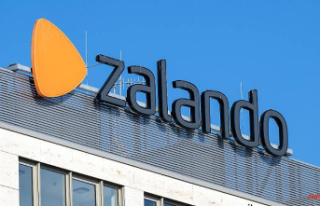Like many central banks, the Bank of England is fighting inflation and is raising the key interest rate more than it has been in almost three decades. However, the monetary watchdogs have a gloomy forecast for the domestic economy.
In view of record inflation in the country, the British central bank has again raised interest rates sharply. She increased the rate by 0.5 percent to 1.75 percent. The Bank of England said the decision was made by eight votes to one. The 0.5 point increase is the highest since 1995.
The central bank expects an inflation rate of 13 percent in October. According to their calculations, the British economy will remain in recession until the end of 2023. Inflation in the UK was 9.4 percent in June, the sharpest rise in consumer prices in 40 years. In the UK, too, energy prices have skyrocketed since the start of Russia's war against Ukraine and Western sanctions against Russia.
For the British economy, the central bank is pessimistic. "We forecast economic output to decline in each quarter from late 2022 to late 2023," the Bank of England said. Growth after that will be "very weak". For this year, the central bank predicts growth of 3.5 percent. The economy will shrink by 1.5 percent in 2023 and by 0.25 percent in 2024.
For Commerzbank, "the interest rate hikes so far are not enough to get inflation under control." The current level of interest rates have "probably not even reached the 'neutral level' at which the economy is neither boosted nor dampened." The experts therefore expect "further interest rate increases to 2.75 percent until the beginning of 2023".
On the other hand, LBBW does not rule out raising the interest rate to just 2.25 percent. Namely, if "the slump in consumer sentiment, the slow recovery from the supply chain problem and the noticeable deterioration in the external economic environment towards the end of 2022 cause the upward pressure on prices to ease".
In view of the high rates of inflation, central banks around the world are currently raising interest rates sharply. Last week, the US Federal Reserve raised the rate by 0.75 points to a level between 2.25 and 2.50 percent. The European Central Bank started in July, raising the rate from zero to 0.5 percent.












